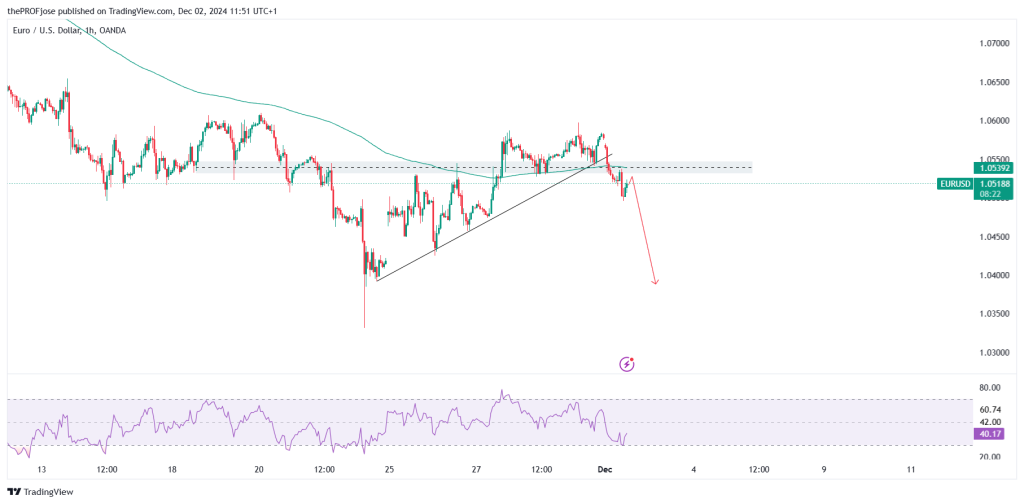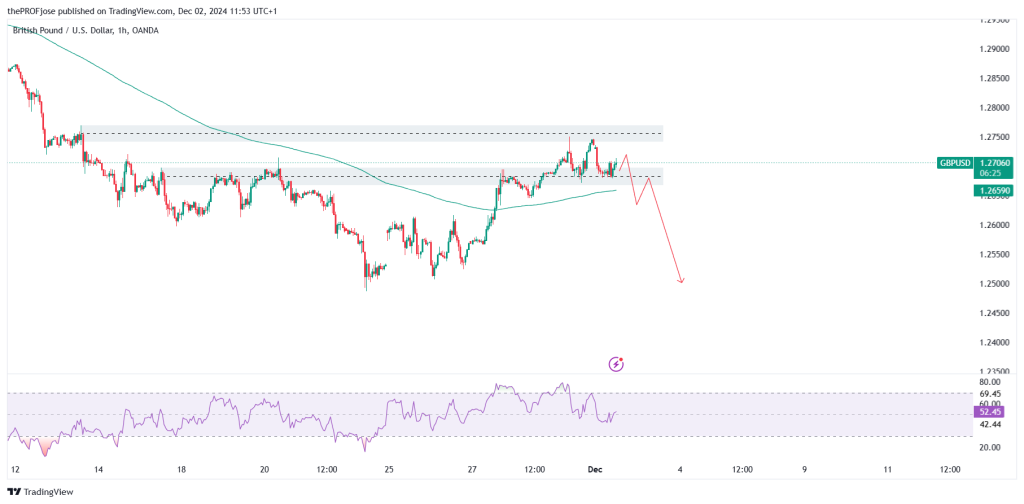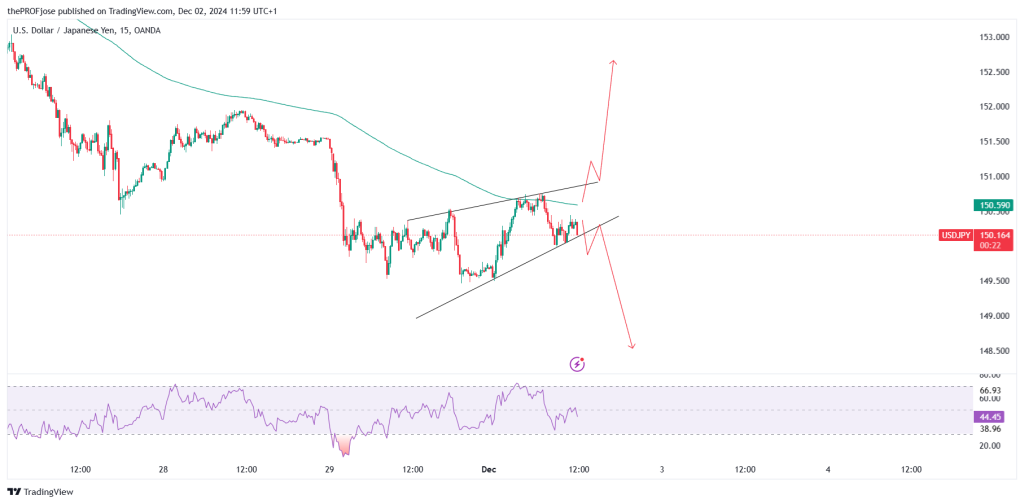
The U.S. dollar remained strong, supported by Federal Reserve optimism and President-elect Trump’s comments, with the DXY gaining 0.25% to 106.31.
Key Points
- EUR/USD dropped 0.6% amid French political instability.
- GBP/USD showed caution, with bearish technical signals.
- USD/JPY hovered near ¥150 on BoJ rate hike speculation.
General Market Overview
The forex market kicked off the week with a mix of political and economic influences shaping price action across major currency pairs. The euro faced downward pressure, impacted by heightened political risks in France, where the far-right National Rally party threatened to collapse Prime Minister Michel Barnier’s government.
In contrast, the U.S. dollar remained firm, bolstered by hawkish sentiment around Federal Reserve policy and supportive comments from U.S. President-elect Donald Trump.
Key events this week include speeches from Federal Reserve officials, and the release of the U.S. non-farm payrolls report, both of which could clarify the Fed’s rate trajectory ahead of its December policy meeting. The DXY gained 0.25%, trading at 106.31, reflecting market confidence in the greenback amid global uncertainties.
Meanwhile, the Japanese yen maintained its recent gains against the dollar, fueled by expectations of potential monetary tightening by the Bank of Japan. In contrast, the pound exhibited modest movement as traders awaited further clarity on U.K. economic conditions and monetary policy.
Read More: What Are The Risks Of Trump’s Trade War?
EUR/USD Analysis
The euro faced significant pressure, dropping 0.6% to $1.0513, its largest single-day decline in a month. This decline was driven primarily by political instability in France, where the National Rally’s ultimatum to Prime Minister Michel Barnier has cast a shadow over European markets. French equities, as represented by the CAC 40, fell 1%, signaling broader investor caution.

From a technical perspective, the euro risks further downside if political tensions escalate. The spread between French and German bonds, a measure of market stress, has risen to 83 basis points, approaching levels last seen during the eurozone debt crisis.
A breakdown of the EUR/USD pair below $1.05 could open the door to a retest of the year-to-date lows, particularly if the U.S. dollar continues to strengthen on Federal Reserve optimism.
GBP/USD Analysis
Investors remain cautious as the U.K. economy grapples with persistent inflation and tepid growth, leaving the Bank of England in a delicate position. The pair remains sensitive to shifts in U.S. dollar strength, with a potential catalyst being the upcoming U.S. payrolls data.
On the domestic front, updates on U.K. economic performance and inflation metrics could provide directional cues.

Currently, GBP/USD is trading in a range. However, since the pair is often correlated to EUR/USD, we may expect it to head to the downside as well. While the price is currently trending above the 200 EMA, the RSI shows a bearish divergence. In this case, we may want to wait for the price to make a decisive move before jumping on any directional trade.
USD/JPY Analysis
The dollar-yen pair exhibited subdued movement on Monday, trading near ¥150.065 after breaking below the critical ¥150 threshold last week. The yen’s recent strength is tied to speculation around the Bank of Japan potentially hiking rates during its December 18-19 policy meeting. This sentiment was fueled by comments from BoJ Governor Kazuo Ueda, who hinted at a possible rate hike depending on wage negotiation outcomes.
The yen remains volatile as markets weigh domestic developments against broader dollar movements. Historical patterns show December as a weak month for the U.S. dollar, which could provide further support for the yen if the BoJ follows through with a surprise policy move.

From a technical analysis perspective, the pair is heavily trading to the downside. While a downward breakout of the wedge pattern can offer a re-entry opportunity for short term traders, the upward setup is also valid should a breakout to the upside occur.
Risk Disclosure: The information provided in this article is not intended to give financial advice, recommend investments, guarantee profits, or shield you from losses. Our content is only for informational purposes and to help you understand the risks and complexity of these markets by providing objective analysis. Before trading, carefully consider your experience, financial goals, and risk tolerance. Trading involves significant potential for financial loss and isn't suitable for everyone.





